School Outreach is the largest program within EWB’s Schools Portfolio reaching approximately 20,000 across Australia annually powered by volunteers from EWB’s chapter and corporate partner network. University chapters are a huge contributor to this program.
While the primary focus of the School Outreach program is to reach school students from underserved demographics, we know the program is also plays an important role is supporting professional and personal development of our volunteers and in the development of their personal identity in the engineering profession. An annual volunteer survey is conducted to check in on this and to inform further initiatives to support volunteer experience.
Who are our EWB School Outreach Volunteers?
There are slightly more female EWB School Outreach Volunteers than male, much higher the 17 %, the proportion of female engineering students.
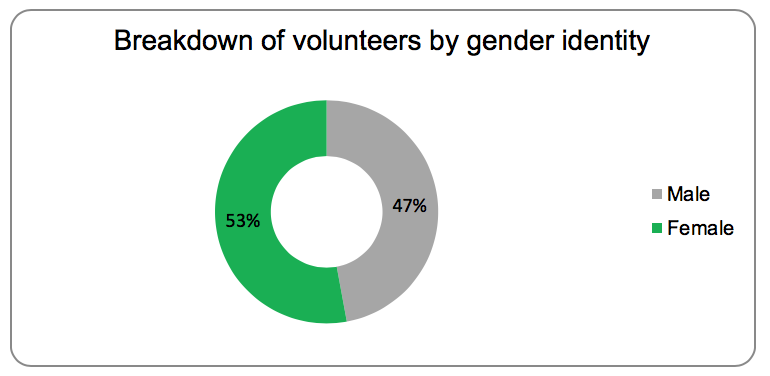
Figure 1 Breakdown of volunteers by gender identityEWB School Outreach Volunteers come from a range of engineering disciplines. Civil engineering, the largest of the engineering disciplines is most strongly represented.
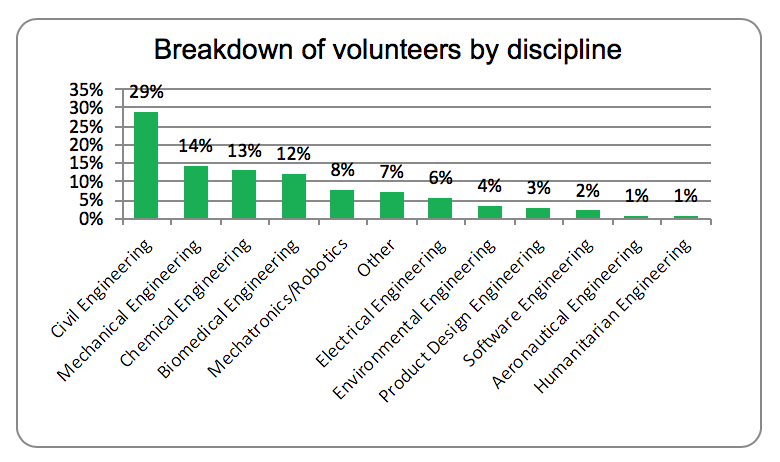
Figure 2 Breakdown of volunteers by discipline
Why do individuals volunteers with the EWB School Outreach program?
Volunteers are asked to select their top five motivations for volunteering with the program by selecting from a list of pre-defined and randomised motivation statements. These statements link to one of the following six motivation categories: Values; Career; Social-Connectedness; Social Pressure / Encouragement; Understanding; and Enhancement.
As can be seen in Fig 3 showing the distribution of motivations, the strongest motivation category is values, reflecting the community-impact objectives of the EWB School Outreach program, followed by enhancement, which might be attributed to the nature of the volunteering activity which pushes volunteers to make presentations in front of an audience, coordinate with multiple stakeholders and explain engineering concepts. Interestingly, female respondents were more motivated by values and less by enhancement.
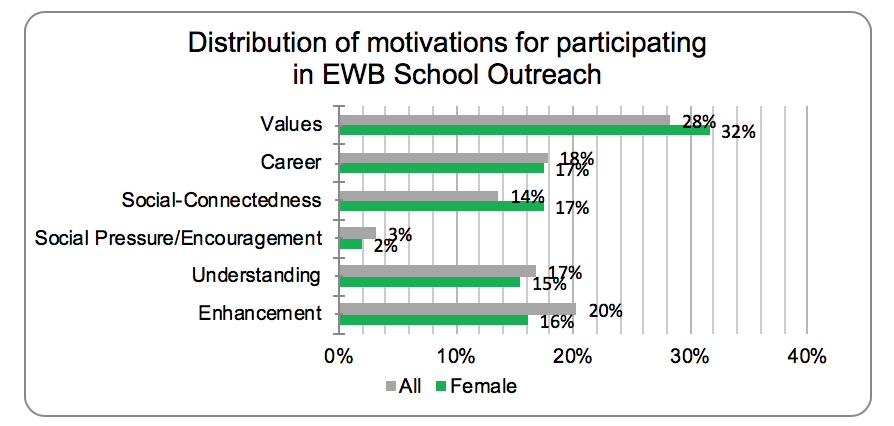
Figure 3 Distribution of motivations for participating in EWB School Outreach
Fig 4 shows the percentage of volunteers who have selected at least one motivation statement from each of the motivation categories. Again values is most strongly represented (again slightly higher for female respondents).
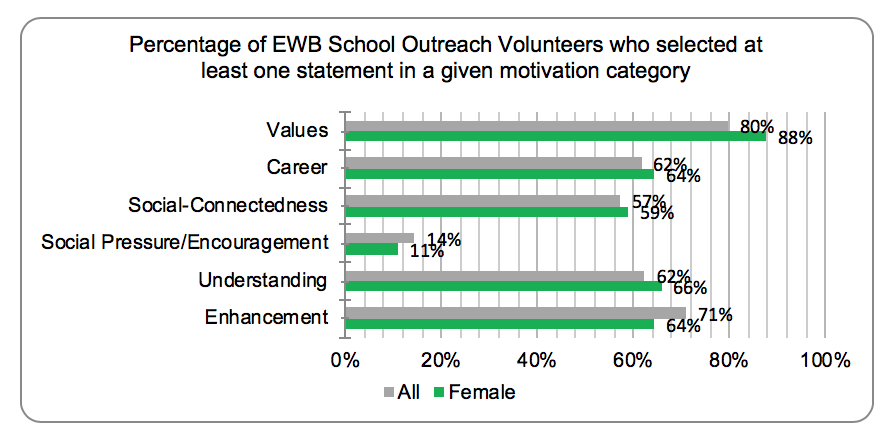
Figure 4 Percentage of EWB School Outreach Volunteers who selected at least one statement in a given motivation category
How has being involved with EWB changed your perception of engineering?
The EWB School Outreach Program provides a platform for volunteers to learn about and share with school students case studies in real-world, community development applications of engineering. EWB School Outreach Volunteers often also participate in other EWB education program which explore real-world community and human-centred engineering. Volunteers were asked to respond to the open question “How has being involved with EWB changed your perception of engineering?”. Answers were reviewed to identify recurring response themes. These were:
- Contextual approaches – The need to apply knowledge in different contexts and environments
- Deeper appreciation of real world application of engineering – by putting theoretical skills and knowledge into practice, awareness and understanding of global issues and the role of engineering in contributing to these.
- Breadth Skills – The importance of being able to apply problem solving and project management skills
- Human and Community Centred Engineering – that engineering is more that working through a technical problem, it is routed in human and community needs and aspirations
- Development of an engineering identity – Development of a deeper understanding of engineering and the possibilities stemming from being an engineer
Fig 5 shows that the strongest change was in understanding the role of engineering as a human and community centred profession reflecting that the message taught to school students through the EWB School Outreach program also important for volunteers. This resonated even more strongly with female respondents. It was pleasing to see that the program also opened up possibilities within the engineering profession for volunteers to explore and carve out their own engineering identity.
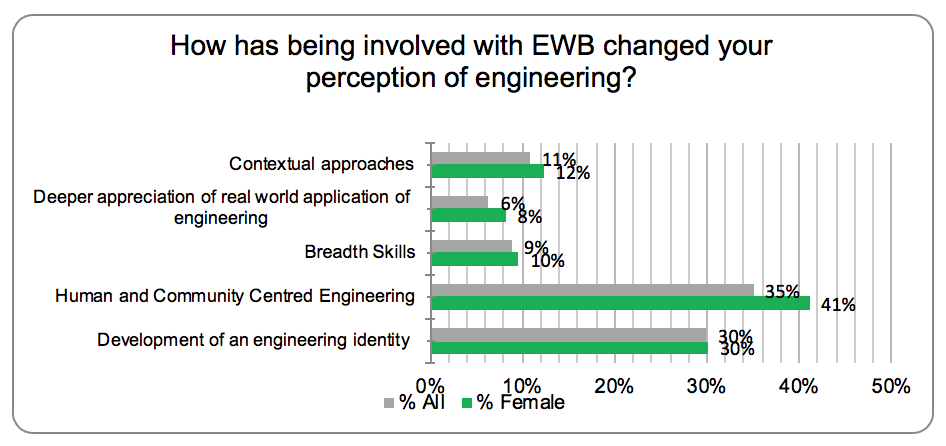
Figure 5 Themed responses for changes in perceptions of engineering
How has EWB School Outreach made you a better student/professional?
This open-ended question was asked to draw out self-reported changes in skill and personal growth that volunteers experience as a result of volunteering with the EWB School Outreach program. This survey question was also asked in previous volunteer surveys for the Engineering Redefined study (Stoakley and Brown, 2018). Data was reviewed to confirm the applicability of these themes and identify any new themes. These themes are summaried below:
- Motivation – drive to do well in studies
- Deeper understanding of the role of engineering
- Professional Skills
- Professional Skills – communication, public speaking
- Professional/Personal Skills -teamwork, interpersonal skills, leadership
- Technical Skills – supplementing what is learned in my course (practical application, new ways of thinking)
- Strengthening my social and/or professional connections
- Personal Growth – time management, organisation, reflection
- Diversity- Awareness, appreciation of its importance and skills and experience in incorporating diversity into engineering practice. Note, this was a new theme.
Fig 6 provides a summary proportion of volunteers who self-reported against these themes. Professional and Personal development were the highest rated theme areas reflecting the vocational nature of this program and the role it plays in providing opportunities for volunteers to have a go at applying these skills. Public speaking and communication related professional skills were identified by almost 60 % of EWB SO Volunteers, followed by Professional/Personal skills, such as teamwork, interpersonal skills and leadership. Interestingly, female respondents reported a much stronger affinity with the development of a deeper understanding of the role of engineering through this program compared with the general response. The new theme, relating to skills in valuing and incorporating diversity into engineering practice likely reflects the increased focus the EWB has placed on this in the last 12 months and within the School Outreach program through the role out of diversity in the classroom training for EWB School Outreach Volunteers.
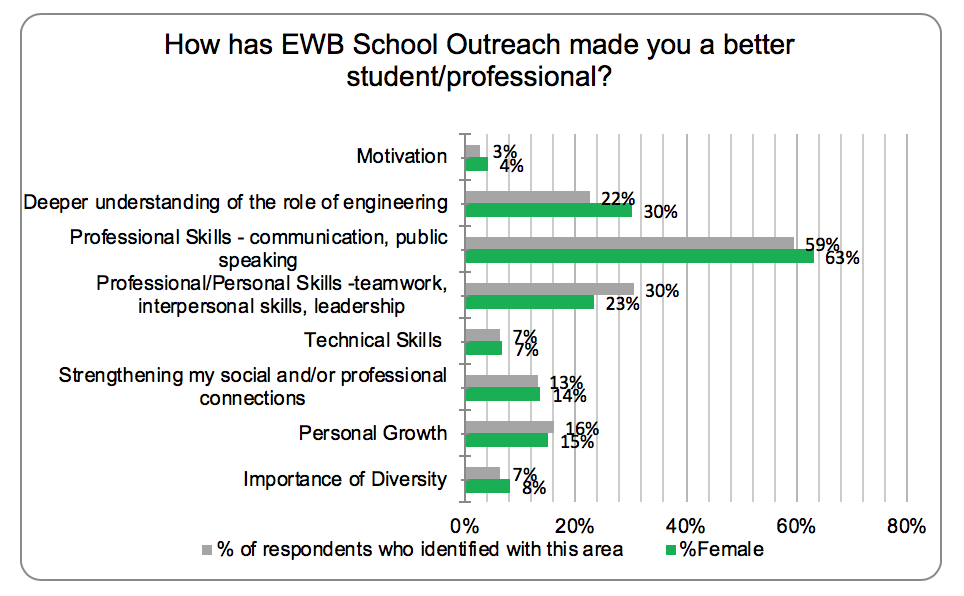
Figure 6 Competencies developed through volunteering with the EWB School Outreach program

